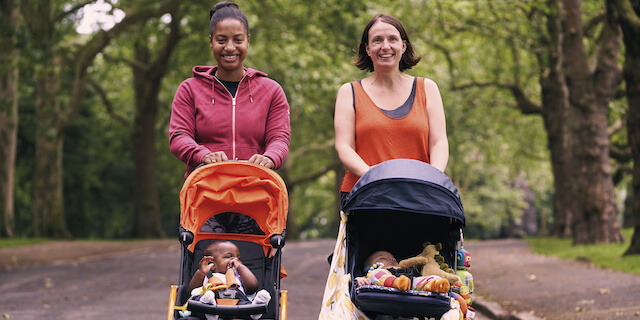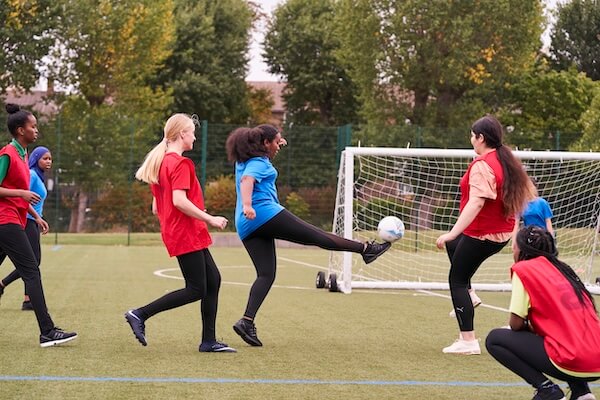
Social walking groups are a great alternative to going it alone and offer the opportunity to meet new people. They also improve your health by helping you burn calories and increase your heart rate. Walking has many benefits, but this article explores its popularity and benefits as well as how to find the right social walking group for you.
Disclaimer: This article provide general advise and
tips for wellbeing. It is best to consult a health professional
before starting any new physical activitiy.
What is a Social Walking Group?
A social walking group is a group of people who get together to walk regularly as a social activity. They may meet at a park, a walkway, or another outdoor space. You don’t have to be in good physical condition to join. You’re welcome to join even if you have health problems or have never walked before. The group members may include friends, family members, coworkers, or any other group members you choose.
There are a number of different types of walking groups that people can join. Some groups take place in parks or on trails; others meet at local businesses or other public places. Some groups are open to all ages, while others may only be open to members who are in a certain age group or have specific health conditions.
The Popularity of Social Walking Groups
Walking groups are a great way to interact with other people and
make friends. By finding the right walking group for you, you can
easily get fit and meet new people. It can be a fun way to
increase your daily steps count. You can find a local walking
group on KeepActive.
Walking Is Good for Your Health
Walking has been proven to have many health benefits, including the following:
- Reduces the risk of many chronic health diseases, including heart disease, stroke, high blood pressure, cancer and type 2
- Can help lower your blood pressure
- Can lower your chances of developing dementia
- Improves your balance
- Helps improve cardiovascular fitness
- Strengthen your bones and muscles
- Improve your sleep, creativity and memory
- Being out in the sun, can help lift your mood and reduce stress
- A social walk can help you maintain your mental health and provide an escape from everyday life
Benefits of Social Walking Groups
People join walking groups for a variety of reasons, including as
a way to improve their health, socialize with others and create a
sense of community. In addition, joining a walking group can be a
fun way to get outside and build fitness. Whatever the reason,
social walking groups offer a convenient way to get fit and meet
new people in your local area.
And there's no need to worry about finding the time to go for a
walk on your own! Just join a social walking group and you'll find
that time becomes much easier to find. Whether you're a seasoned
walker or just starting out, there's always someone ready and
willing to go with you!
As with any other form of exercise, social walking groups can help you build self-confidence and boost your energy levels.
You can also join a walking group that specializes in a particular walk that you enjoy, such as hiking groups, bird watching groups, photography groups etc...
Finding the Right Group for You
Before you join a social walking group, you want to make sure the group is a good fit for you. Here are some things to examine when finding the right group for you:
- How often do the group members meet? This will affect when you can meet with the other group members, but it’s also important to factor in your work schedule.
- What is the purpose of the group? There are many different
types of walking groups, so make sure the purpose of the group
is a good fit for you.
- How serious is the group? Some walking groups are very laid back and members walk at a leisurely pace, whereas others may be more fitness-oriented and fast paced.
- What are the age, gender and demographics of the group? You want to join a walking group with people who are between the same age range as you, of the same gender as you and even one taht brings people from a certain commiunty together (like chinese community, indian community, LGBTIQ+ etc..).
- Is the group active outside of walking? Some group may
organise additional activities together such as hiking, bowling,
or other social events.
- Is there a leader in the group? Having a leader can help keep the group momentum going and ensure regular walks happen.
- Do you want to meet at a specific location or do you want to
explore different parks on your next outing? Some people might
prefer to explore different parks on their next outing because
of their preference for a change of scenery, while others might
prefer a fixed meeting point with easy accessibility.
- If the group is smaller, participants can spend more time one-on-one with each other, which can result in greater personal connections. If the group is larger, it's excellent for individuals who like meeting new people, listening to their stories, and learning about their backgrounds.
Tips for walking group organisers
To make group walking a success, follow the tips below.
- Set a clear goal for the group. The type of community you want to create and your own goals for the group. This could be meeting new people in your community, or improving your physical health. For more ideas on what to consider, see the above section on "Finding the right group for you"
- Make sure to share your group on socials and in your local community Facebook groups. Most people enjoy the support of others, and the social aspect of meeting new people in your community.
- Choose a friendly group photo that represents your group and also ensure you set your own profile photo. This can be a great way of helping people connect with the group and the organiser.
- People can be a little scared of joining a new group, so make sure to communicate with your group members regularly.
- If you haven't decided on a meeting point and time, you can get suggestions from your group. Choose a public space as a meeting point where everyone feels safe and ensure you greet everyone with a welcoming smile.
Conclusion
Walking is a great way to stay fit and meet new people. It also has many health benefits and is an easy way to get moving. If you’re new to walking, you may want to consider joining a social walking group. There are many different types of walking groups, so make sure the one you join is the right fit for you. Once you find the right group, you’ll love how much better you feel after walking with your new friends.
Share your walking group and inspire others
Got a tip on a great walking group or a story to share? Join the KeepActive Facebook group or tag us on Instagram or Facebook to share your tips or story. There are a lot of people unsure about starting their fitness journey or meeting strangers, seeing stories and photos from other people can inspire others to take their first step.






